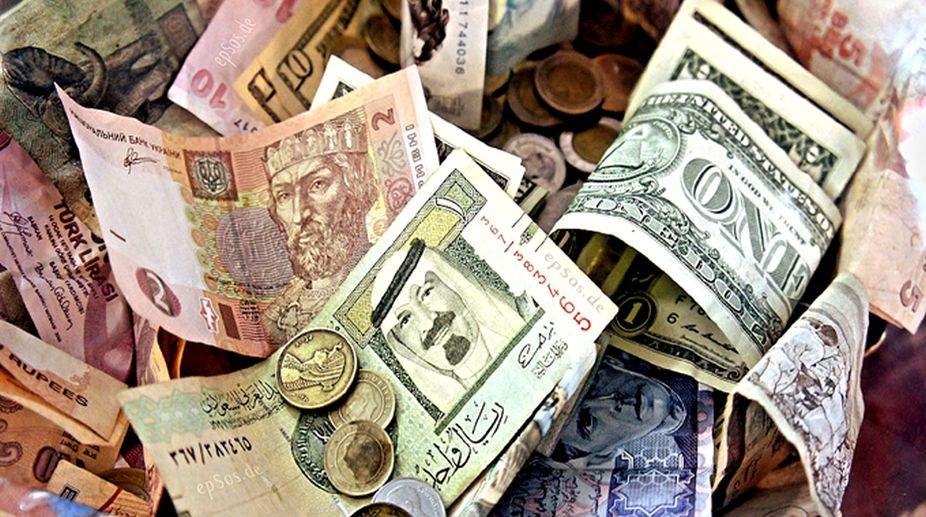Almost all physical systems on this earth naturally tend towards a condition of equilibrium or “equalisation” and there is a continuous movement or turbulence in the system until this condition is reached. When a water tank is connected to a second tank situated at a lower level, water from the higher tank would continue to flow to the lower tank until the water level becomes the same in two tanks. If a hot object comes in contact with a colder object, heat would flow from the hot object to the colder one until they both reach the same temperature. If an electrically charged object touches an uncharged object, charge would flow from the charged object until they both have the same potential. If we add a tablespoonful of sugar into a glass of water, sugar molecules would disperse into water until the concentration is uniform throughout the body of water. The list goes on.
Many also believe in a similar principle in social life. They think that some type of uniform wealth or resource distribution would be the remedy for all the ills and turmoil of the society including various conflicts, poverty, hunger etc., and as a result, human society would reach a peaceful stable status. They feel that this should be the goal of society at large. One can even go further and assert that, since all men are created equal, they all deserve to enjoy all the resources on this earth equally and have a fundamental right to do so. This is basically the concept of utopia and many religious people believe that this is also God’s intention.
Advertisement
I would like to argue that the human race would never reach this utopia and this is not God’s intention. There are three fundamental reasons for my assertion. One, achieving an equitable wealth distribution is not a natural process; most wealthy people do not want to simply voluntarily donate part of their wealth to the less fortunate, no matter what the situation might be. Two, from geographical and meteorological points of view, the earth is not uniform. Most of it is water and the terrain of the land is highly non-uniform. Weather wise, there are very hot regions and very cold regions and regions with all temperatures in between. As a result, people in different parts of the world face different problems. Three, contrary to the belief that “all men are created equal”, the fact is that all men are not created equal.
On the first point, it appears that the natural process is almost opposite of wealth distribution. It seems that wealthy people use their wealth to generate more wealth rather than donate. I would propose a “Gedanken” experiment whereby a large number of people are given the same amount of money and taken to an island, full of all kinds of natural resources and left there for a long period of time in isolation from the rest of the world to see how they behave in a socio-economic sense.
My belief is that, after a period of say five years, one would see a “bell-shaped” distribution in their wealth. Some people would find a way to exploit others and gain more resources by doing less. This is human nature. As a result, the rich people get richer and the poor people get poorer. So, if we force some artificial wealth redistribution scheme through political edicts or economic regulation, I doubt that it would lead to a permanently stable and peaceful society.
Secondly, a more uniform resource distribution would require a more uniform population distribution across the entire world. It would not make sense to distribute the same amount of wealth to people who cluster around large cities compared to the ones who struggle in the extreme weather conditions in some remote part of the world.
The inherent non-uniformity of the earth’s surface and weather pattern would almost automatically favour persons in certain regions over the ones from other regions whether or not a wealth distribution scheme is in place. In fact, these two non-uniformities are ultimately responsible for development of different races and cultures, which in turn have contributed to various inequalities and conflicts. The reason the USA is such a wealthy nation is simply because it is a vast country full of natural resources and is very sparsely populated.
The statement that “all people are created equal” is obviously incorrect if we interpret it literally: the differences in their DNA, culture, climate, mental and physical condition at birth, socio-economic condition of their social stratum etc all contribute to inequality. However, this statement was incorporated in the American Declaration of Independence more in a philosophical and Biblical sense. I would argue against it from the point of view of Hindu philosophy and concept of reincarnation.
I believe that people are not born equal because they are all at different points in their Karmic voyage towards Nirvana i.e. at different stages of progress in their hundreds of reincarnations. There are some who are in very primitive early stages and there are others in a more advanced stage from a spiritual point of view, depending on their activities in previous lives. I do not think that God wants to make this earth equally pleasant and comfortable for everyone so that people can live happily ever after. That would make this earth equivalent to some type of heaven and defeat the purpose of reincarnations.
I have heard one skepticism from many people: “If there was a God, then why is there so much misery on this earth? Why do innocent people get killed for no reason?” It seems to me that a conceivable answer would be to say that God does not want life on this earth to be wonderful and full of bliss. In fact, the whole point is for everyone to realise that life on this earth is indeed full of misery and the goal should be not to come back and go through the same agony in our next life.
I believe that wealthy people have wealth as a result of their good deeds in previous life. However, God did not give them wealth for them to accumulate more wealth or to indulge in materialistic possessions and physical pleasures. Wealth is meant for them as a means to free up their time so that they can do better things in life; being wealthy means one has to spend less time in the struggles of life and more time to think and seek self-realisation.
A good example is Rabindranath Tagore. He did not have to work a single day in his life because his family had plenty of money. So, he ended up devoting the time he had on his hand in pursuit of creative and spiritual thoughts. I have no doubt in my mind that he has been reincarnated in a “higher” life. Steve Jobs was a multi-billionaire, but he devoted his time with passion in various creative inventions which benefited billions of people. That was his way of seeking a higher power. Neither one was known to be a promoter of wealth redistribution, but they spent their money in establishing their values which benefited generations.
Now, if one feels a divine joy in sharing one’s wealth with others or donating everything one has to others, then one makes substantial progress in one’s spiritual journey. However, to make this progress one must feel that this joy is beyond anything one has experienced from materialistic and physical pleasures; that this joy is just a glimpse of the heavenly bliss that waits for one at the end of the journey. But this feeling has to come from inside and not from reading books or listening to sermons from a pastor or out of fear of going to “hell”, and certainly not from a political agenda. One must feel this divine joy in one’s heart. It is not related to how many people the donation has benefited or how.
Generosity in order to follow government policies or boost one’s social image does not count for anything in an ultimate spiritual sense for that person. Should we not care for the poor people who are hungry or homeless or suffering from some illness? Of course, yes, but only if our heart says “yes”. If one does not feel any compassion and simply walks away, that does not mean that one would end up in hell or some such horrible place; it simply means that there are many more reincarnations waiting for that person before divine enlightenment.
(The writer, a physicist who worked in academia and industry, is a Bengali settled in America.)











